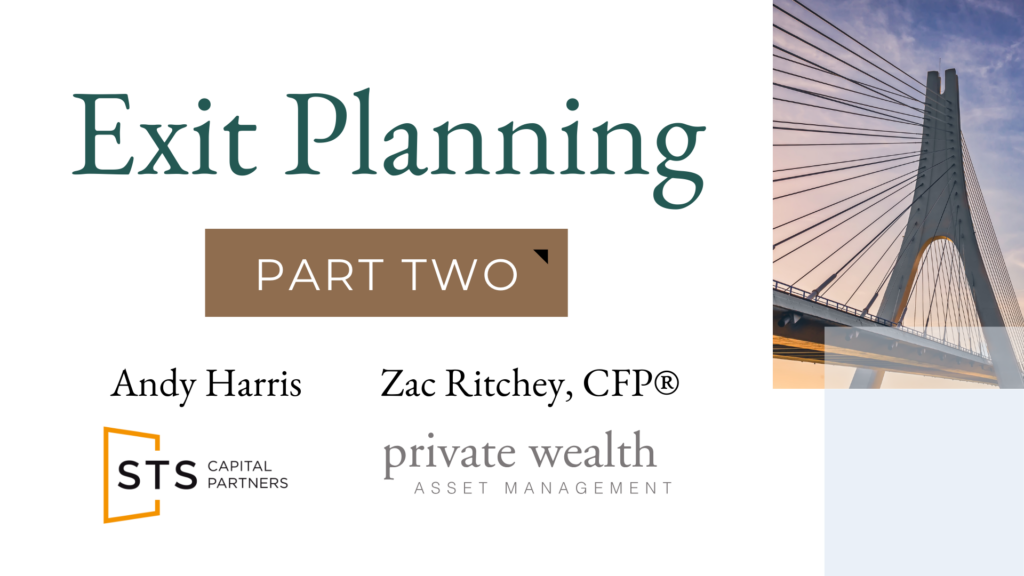What Is Estate Planning and Why Is It Important?
Estate planning is the process of making decisions regarding the distribution of your assets, caring for your loved ones and ensuring your wishes are carried out after your death. It is an important process that offers protection and peace of mind for both you and your family.
A comprehensive estate plan usually includes things like a will or trust, a power of attorney, healthcare representatives, and beneficiary designations.
When these documents are absent, it creates uncertainty about the wishes of the individual. This may increase the likelihood of family members disagreeing over how to divide assets and who is in charge, which can strain relationships and create unnecessary tension during an already emotionally charged period.
When Should You Begin Estate Planning?
Estate planning is important for all adults regardless of age. We recommend starting early. In fact, before a child heads off to college, it is important they have at least a power of attorney in place.
When a child reaches the relevant age of adulthood, generally the parents’ rights to financial or health information for their adult child ceases. To ensure your ability to contact your child’s bank or credit card company on their behalf, or to speak to your child’s medical provider in the event of an emergency, your child should consider executing a power of attorney for financial matters and a health care directive/health care power of attorney for medical matters. These legal documents allow the adult child to appoint someone they trust to make financial or medical decisions on their behalf if they become incapacitated.
Of course, many individuals wait until they have children of their own to make these arrangements. However, I say it is never too early to protect yourself, your loved ones and your money regardless of your age or assets.
Common Mistakes in Estate Planning and How to Avoid Them
Many individuals make mistakes when it comes to estate planning, which can have serious consequences for their loved ones. By being aware of these common pitfalls, you can take proactive steps to avoid them.
1. Failing to Plan
Estate planning isn’t just about organizing legal documents; it’s about ensuring your last wishes are honored and your loved ones are taken care of. Without a good plan, you risk causing pain and heartache for your family by relying on luck.
By proactively engaging in estate planning, you are giving your family a priceless gift. You are lifting a burden from their shoulders by providing them with a detailed roadmap of your wishes. This level of clarity minimizes disagreements, reduces stress and provides your family with the peace of mind that comes from knowing they are honoring your intentions.
2. Not Informing Family and Friends
Talking to your family and friends about your estate plan is as vital as having the documents in order. These discussions ensure everyone knows your wishes and understands how your assets should be distributed. This can prevent future misunderstandings and conflicts among loved ones, reducing potential stress.
Equally important is letting them know where your estate planning documents are stored. Without this information, it can be tough for your family to carry out your wishes. In emergencies, the inability to locate these documents can add unnecessary stress to an already challenging situation.
3. Naming Just One Beneficiary
When you’re crafting your estate plan, you might have one person in mind as your main beneficiary. However, it’s just as important to consider a backup or contingent beneficiary.
Without a contingent beneficiary named, there can be potential consequences. For example, if your primary beneficiary predeceases you or is unable to inherit your assets for any reason, the assets may end up going to someone you didn’t intend. This can disrupt your carefully planned estate distribution and potentially lead to conflicts among your loved ones.
4. Forgetting About Powers of Attorney or Healthcare Representatives
One area of estate planning that is often overlooked is identifying people to assist you with financial and medical decisions in the event you are unable to address them yourself during your lifetime. It’s a good idea to name one or more agents to act on your behalf on a power of attorney for financial matters or a health care directive for medical decisions.
An attorney-in-fact, which is designated under a power of attorney, is the person you give authority to manage your bank accounts, pay bills and make necessary financial decisions on your behalf.
Appointing a healthcare representative is important to ensure your medical wishes are followed when you can’t communicate them. This individual will act as your advocate and make medical decisions on your behalf based on your predetermined instructions or best interests. Without a healthcare representative in place, important medical decisions may be left in the hands of doctors or family members who may not fully understand your wishes.
5. Not Keeping Your Estate Plan Updated
There are several reasons why it is important to update your estate plan regularly. First, major life events such as marriage, divorce or the birth of a child may require adjustments to your plan. Without updating your estate planning documents, you run the risk of excluding or including individuals who should or shouldn’t receive a portion of your estate.
Changes in your net worth can also impact your estate plan. If your assets change significantly, it is crucial to review your plan and align it with your current financial situation.
Another reason to update your estate plan is a change in your employment status. If you start a business, change jobs or retire, you may need to update your estate plan. This is necessary to include any new assets or liabilities that you may acquire.
Lastly, changes in residence or relocation to a different state can have legal implications for your estate plan. Laws governing estate planning vary by jurisdiction, so it is crucial to update your plan to comply with the laws of your current state.
We recommend you revisit your plan every three to five years or when significant changes occur. By keeping your plan updated, you can have peace of mind knowing your assets will be distributed according to your wishes regardless of any life changes that may occur.
6. Neglecting Your Digital Assets
In today’s digital age, it’s important to include a digital estate plan as part of your overall estate planning process.
Digital assets can range from social media accounts to online banking and email accounts. Not considering these assets can cause problems for your family in accessing and handling them after you die.
To make a digital estate plan, first make a list of all your digital assets like usernames, passwords and access info. Your digital executor will be responsible for navigating the complex landscape of digital assets and ensuring they are properly managed and distributed according to your wishes. It’s important to choose someone who is tech-savvy and trustworthy.
7. Forgetting About Charities That Are Important to You
When creating your estate plan, don’t forget about including the charitable causes that are important to you. Including charity in your plan helps you support causes you care about and may provide tax benefits before and at death. Here are some ways you can include charitable giving in your estate plan:
- Direct gifts to charities: One of the simplest ways to support charitable causes is by making direct gifts to your favorite organizations. You can specify an amount or a particular asset to be donated.
- Charitable trusts: Setting up a charitable trust allows you to donate assets to a trust, which then distributes income or principal to the charities of your choice. This can provide an ongoing source of support for charitable causes even after your passing.
- Donor-advised funds: Donor-advised funds are charitable accounts managed by public charities. When you donate to a donor-advised fund, you receive a tax deduction immediately. Additionally, you have the ability to recommend which charities should receive grants at a later time.
- Family foundations: Establishing a family foundation provides a long-term platform for you and your family to support charitable causes. It allows you to have control over your charitable giving and involve future generations in philanthropy.
Incorporating charitable giving into your estate plan allows you to leave a lasting legacy and make a positive impact on the causes you care about.
Watch: Private Wealth Asset Management and Fidelity Present Charitable Planning Essentials
8. Not Thinking About Your Children’s Futures
Nobody wants to think about how their children might be impacted by their death, especially when the children are young. But not having a well-executed estate plan can leave children vulnerable. We all want to make sure our children are taken care of and that their best interests will be protected no matter what happens to us. Here are some steps to guide you through this process:
- Choose guardians: Selecting guardians for your young kids is a very important choice that requires advanced thought. Pick someone who shares your values, genuinely cares for the well-being of your children and has the ability to care for them. Have an open conversation with potential guardians to ensure they’re willing to take on this responsibility.
- Set up trusts: Trusts allow you to specify your wishes for how your assets should be used for the benefit of your children, ensuring your kids are protected for the future. Trusts offer financial stability and serve as a resource for expenses. Depending on the terms, a trust can also protect assets for the child into adulthood. With a trust, you can specify how the funds should be used—education, healthcare or important life events, for example—and at what age your children can have more control over the trust assets.
- Consider timing: Think about the appropriate age for your children to receive their inheritance. Many experts suggest waiting until they are 25 years or older, as they are more likely to handlet he finances responsibly by that age.
- Choose a trustee: Picking the right trustee is crucial. The trustee will manage the trust and make financial decisions until your children reach the specified age. Trustworthiness and financial savvy are essential qualities for a trustee.
9. Going It Alone
Going it alone in estate planning might seem tempting, but it can be a pricey misstep. Crafting a thorough estate plan demands expertise and thoughtful consideration. Without professional guidance, you risk making common errors that could profoundly affect your assets and loved ones.
Consulting with a professional, like a trusted advisor or estate planning attorney, is crucial to ensuring that your estate plan aligns with your goals and unique circumstances.
A professional can help you:
- Navigate complexities like estate taxes.
- Establish trusts.
- Choose the right beneficiaries, including contingencies.
A complete estate plan accounts for everything from your business interests and real estate to investments and retirement savings. It also covers aspects like healthcare powers, charitable giving and digital assets. Each piece needs careful scrutiny and coordination.
If you need someone to review your plan or you need help getting started, reach out to an advisor. We are here to help.






